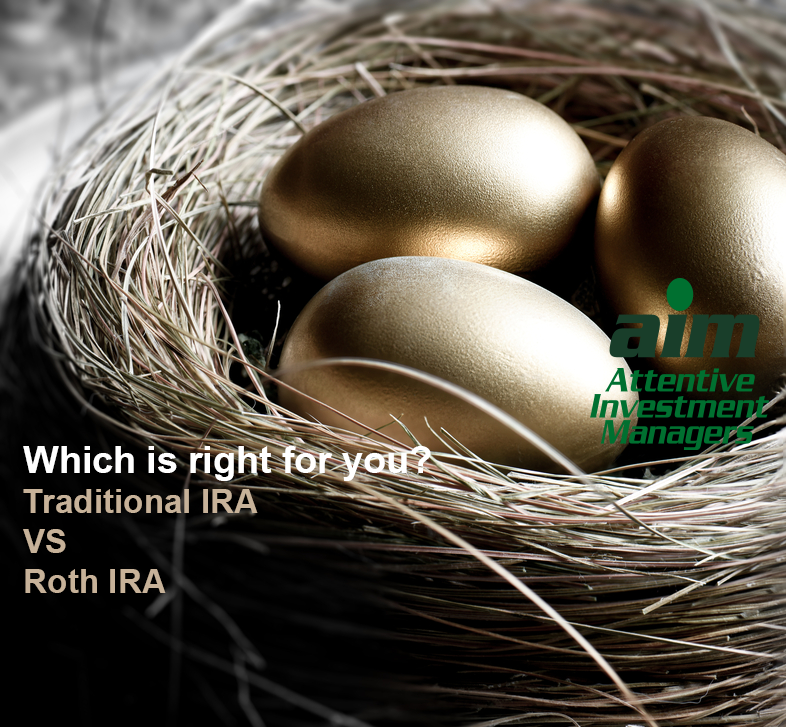Difference between a Traditional IRA & a Roth IRA
Do you know the difference between a Traditional IRA & a Roth IRA??
IRA accounts, otherwise known as, Individual Retirement Accounts are a way for to save for retirement. A Traditional IRA can be funded with pre-tax contributions and can be a tax deductible (check with your tax advisor) and grow tax-deferred until age 70 ½ (when the IRS requires you to begin distributing the assets).When you retire and draw on the funds, the money would be taxable as ordinary income.Theoretically, you would be in a lower tax bracket during the withdrawal phase.It is important to note, that any distributions taken prior to 59 ½ are subject to both taxes and an early withdrawal penalty from the Fed of 10% and the State of 2.5%.
Roth accounts are quite similar however, are funded with after-tax contributions and act more like special savings accounts.Although you do not receive a tax deduction for the contribution, the Principal Investments can be withdrawn tax & penalty free any time.Also, any distributions after age 59 ½ or a minimum of 5 years are 100% Tax-Free.These features make this type of retirement savings highly attractive.
Both types of accounts are complimentary to one another and excellent ways for an individual to save toward their retirement goals. For 2015 the maximum contribution for both the Traditional IRA and the Roth IRA for individuals under 50 years of age is $5,500.
Three other tax-time reminders related to Roth or Traditional IRA contributions:
- Catch-up contributions: Anyone age 50 or over during the last year who qualifies for a Roth or Traditional IRA is eligible to add $1,000 to their annual contribution, allowing $6,500 to be contributed for 2015!
- Spousal IRA contribution: Provided a couple files a joint tax return and has sufficient earned income, based on the working spouses income a contribution can be made to an IRA for the spouse. The non-working spouse must still be eligible, though: under the income limit for Roth IRA contributions and the age limit for Traditional IRA contributions.
- No extension: Remember: 2015 IRA or Roth Contributions must be postmarked by April 15, 2016. There is no extension on the contributions, even if a tax-return extension is filed.
About the author
Athena K. Stone has been with Attentive Investment Managers, Inc. since 2003, is an Investment Advisor and the Chief Compliance Officer for the company. Mrs. Stone earned her Chartered Retirement Planning Counselor (CRPC) designation in 2010 from the College for Financial Planning. She received the designation of Accredited Investment Fiduciary (AIF) from Fi360 in 2011. She earned her Bachelor of Arts Degree in Organizational Leadership from Brandman University in 2012 and her Master of Science in Financial Planning and Designation of MPAS (Master Planner Advanced Studies) from the College for Financial Planning in 2018.
By accepting you will be accessing a service provided by a third-party external to https://www.attentiveinv.com/

Comments